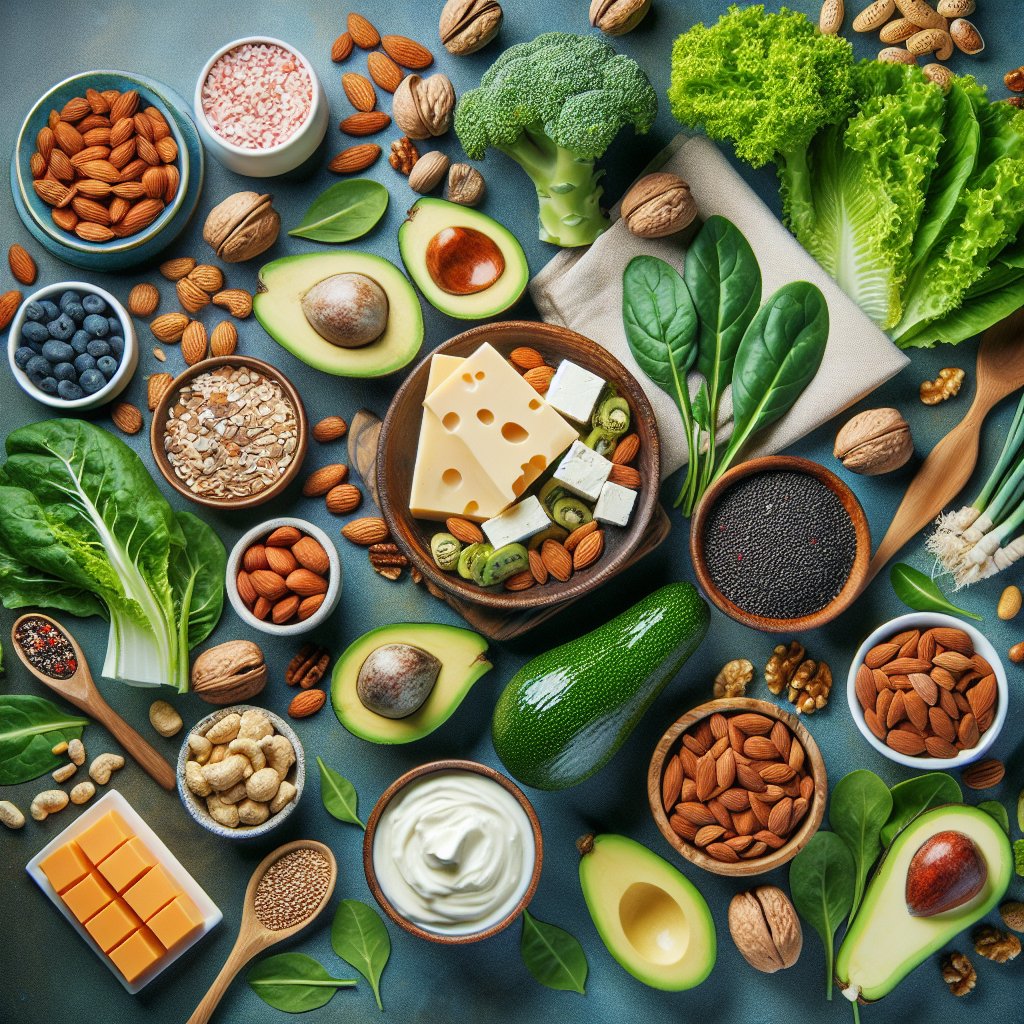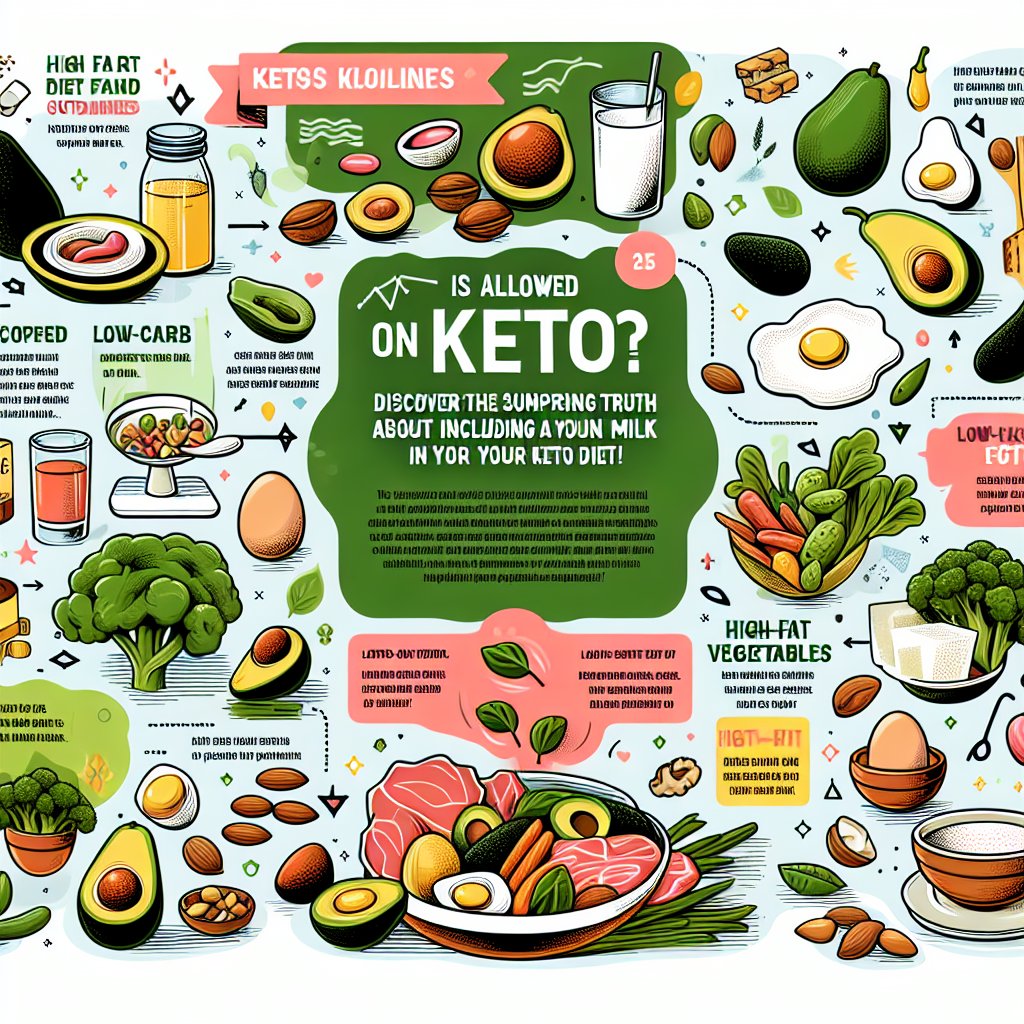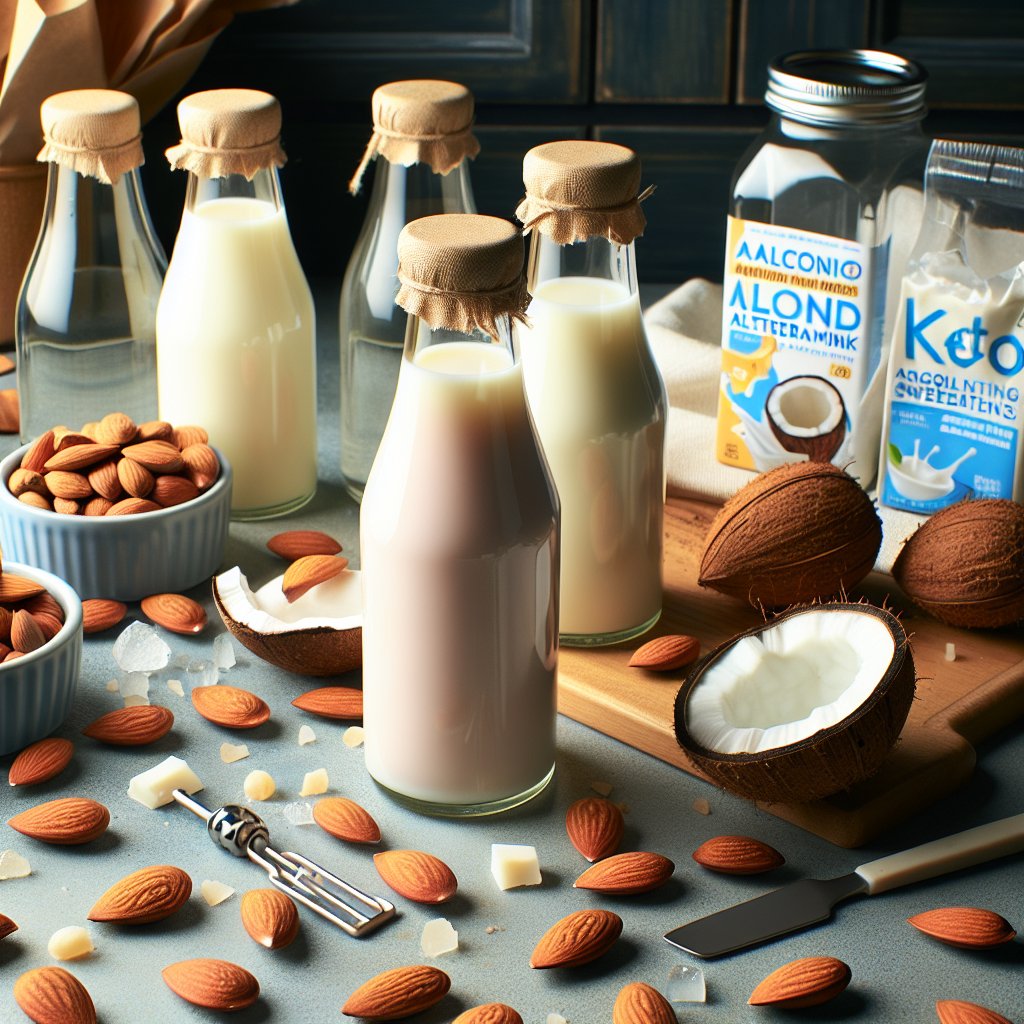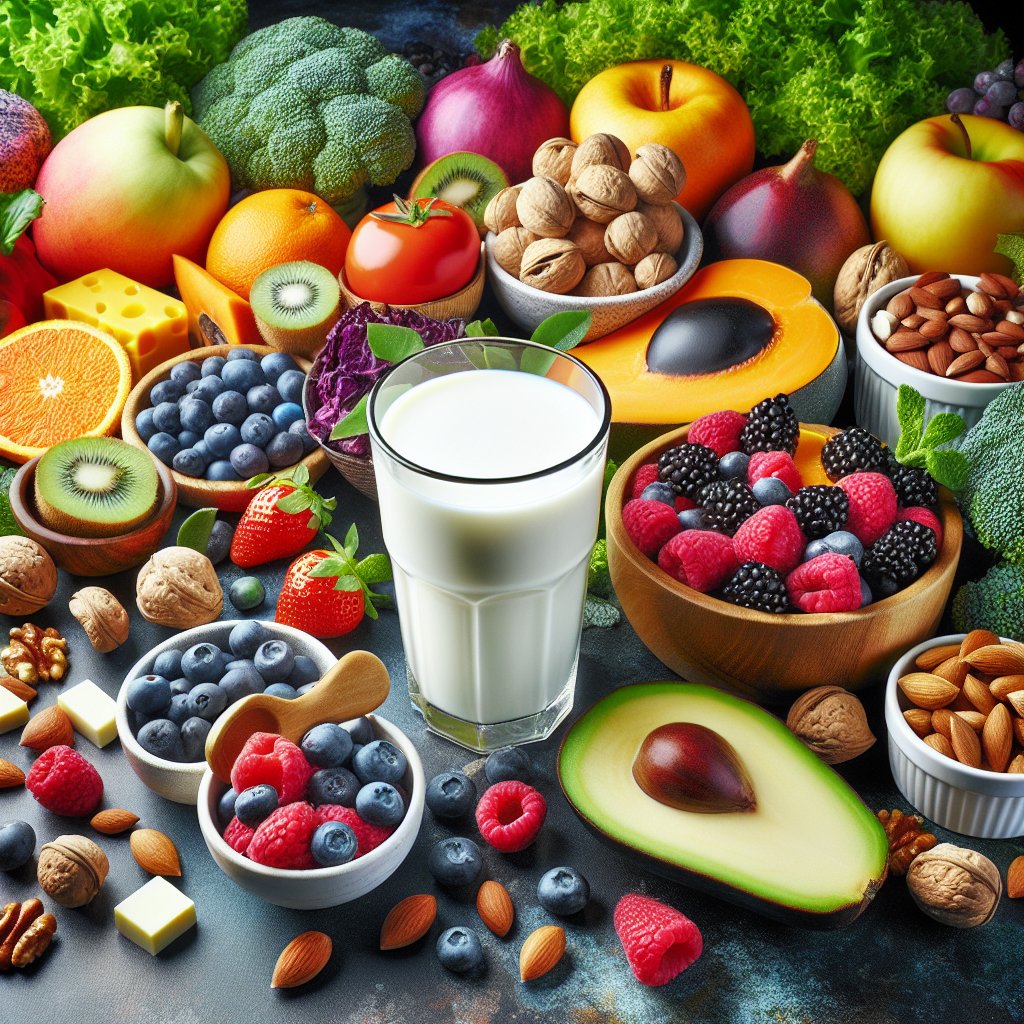Is Milk Allowed on Keto? Discover the Surprising Truth About Including Milk in Your Keto Diet!
Is Milk Allowed on Keto? Discover the Surprising Truth About Including Milk in Your Keto Diet!
Welcome to our blog, where we delve into the exciting and popular world of the ketogenic diet and lifestyle. Today, we’re discussing a topic that’s on the minds of many keto enthusiasts: Is milk allowed on keto? The keto diet has gained significant popularity in recent years, and it’s no surprise why. With its potential benefits for weight loss, improved mental clarity, and enhanced energy levels, it has captured the attention of countless individuals looking to revamp their health and wellness.
One of the key factors that determine success on the keto diet is knowing which foods are allowed and which should be avoided. This includes a clear understanding of the macronutrient breakdown of various food items to ensure they align with the principles of the keto diet. With dairy products being a staple in many people’s diets, knowing where milk stands in the keto world is essential for making informed choices that support your health goals.

What is the Keto Diet?
Hey there, keto enthusiasts! Today, we’re diving into the nitty-gritty of the ketogenic diet – commonly known as the keto diet. If you’re new to this exciting lifestyle, let me break it down for you. The keto diet is a low-carb, high-fat diet designed to switch your body’s primary fuel source from glucose to fat, ultimately leading to a state called ketosis.
So, how does it work? Well, typically, our bodies use carbohydrates as the main source of energy. When you reduce your carb intake and increase your fat consumption, your body enters a metabolic state known as ketosis. In this state, your body becomes incredibly efficient at burning fat for energy. It also turns fat into ketones in the liver, which supplies energy for the brain.
Now, achieving ketosis is the ultimate goal of the keto diet. This metabolic state not only aids in weight loss but also offers various health benefits, including improved mental clarity, increased energy levels, and better blood sugar control.
Keto Diet Guidelines: Low-Carb, High-Fat Foods
Hey there, keto enthusiasts! If you’re new to the ketogenic diet or looking for a quick refresher, let’s dive into the key guidelines of this lifestyle. The keto diet is all about transforming your body into a fat-burning machine by consuming low-carb, high-fat foods. This means that your meals and snacks should primarily consist of foods like meats, fish, eggs, cheese, nuts, healthy oils, avocados, and low-carb vegetables.
The science behind this is fascinating. When you significantly reduce your carb intake, your body enters a state of ketosis, where it starts burning fat for fuel instead of glucose. It’s like turning the switch from a sugar-burning mode to a fat-burning mode, which can lead to various health benefits.
Research published in the Journal of Clinical Investigation has shown that following a ketogenic diet can aid in weight loss, improve insulin sensitivity, and even support brain health. These findings have sparked a lot of excitement around the keto diet, and it’s no surprise that many people are eager to understand and embrace its principles.
So, on the keto diet, remember to keep your carb intake low, focus on healthy fats, and embrace a moderate amount of protein to support your overall nutrition and well-being.

Nutritional Profile of Milk
One of the most debated topics in the keto community is whether milk is allowed on the keto diet. Let’s break down the nutritional content of milk to help you understand how it fits into a keto lifestyle. Milk is a good source of essential nutrients, including carbohydrates, fats, and proteins.
Carbohydrates
It’s crucial to be mindful of the carbohydrate content in milk when following a keto diet, as the goal is to keep carb intake low. At approximately 12 grams of carbohydrates per one cup of whole milk, it’s evident that milk contains a significant amount of carbs. Therefore, if you choose to include milk in your keto diet, it’s essential to factor in these carbohydrates and consume it in moderation to stay within your daily carb limit.
Fat
When it comes to fat content, whole milk contains about 8 grams of fat per cup. The high fat content in milk can make it a suitable option for those following a keto diet, as fat is encouraged for energy and satiety on this eating plan. Additionally, the fat in milk is rich in essential fatty acids, including omega-3s, which offer various health benefits.
Protein
Milk is also a good source of protein, with around 8 grams per cup. Protein is essential for muscle repair and growth, and it also plays a role in keeping you feeling full and satisfied. Including moderate amounts of milk in your keto diet can contribute to your daily protein intake.
Considering its carbohydrate, fat, and protein levels, milk can be included in a keto diet in moderation, especially for those who are not lactose intolerant and enjoy its taste and nutritional benefits.
Is Milk Allowed on Keto?
Yes, You Can Enjoy Milk on the Keto Diet!
If you’re a milk lover, you’ll be thrilled to know that you can still enjoy it while following the ketogenic diet! However, it’s essential to make the right choices to ensure that you stay within your daily carbohydrate limit and maintain ketosis.
The Impact of Carbohydrates in Milk
While milk contains lactose, a naturally occurring sugar, its carbohydrate content can vary depending on the type of milk. For example, a one-cup serving of whole milk contains around 12 grams of carbohydrates, while the same serving of unsweetened almond milk contains only 1-2 grams of carbohydrates. Therefore, it’s important to be mindful of your portion sizes and opt for lower-carb milk alternatives to fit within your daily carb allowance.
The Impact on Ketosis
Research indicates that consuming moderate amounts of milk is unlikely to significantly impact ketosis for most people. As long as you keep track of your daily carb intake and choose lower-carb milk options, such as unsweetened almond milk or coconut milk, you can still enjoy milk in your keto lifestyle.
When selecting milk for your keto journey, opt for unsweetened versions and incorporate them into your daily carbohydrate count to ensure they fit within your macros. Remember, everyone’s carbohydrate tolerance levels can vary, so it’s essential to monitor your ketone levels and how your body responds to including milk in your diet.

Alternative Milk Options for Keto
For those following a keto diet, regular cow’s milk may not be the best choice due to its higher carb content. But fear not, there are plenty of delicious and keto-friendly alternative milk options to enjoy! These alternatives are not only lower in carbs but also packed with essential nutrients and healthy fats.
Almond Milk
Almond milk is a fantastic keto-friendly alternative to traditional milk. It is low in carbs and calories, making it an excellent choice for those looking to reduce their carbohydrate intake. Additionally, almond milk is rich in vitamins E and D, and also provides a dose of healthy fats, which are crucial for a well-rounded keto diet.
Coconut Milk
Coconut milk is another great option for those on a keto diet. It contains lauric acid, a type of healthy fat that has been shown to promote heart health and support the immune system. Coconut milk is also rich and creamy in texture, making it a perfect addition to keto-friendly smoothies, soups, and curries.
When selecting alternative milk options for a keto diet, it’s essential to choose unsweetened varieties to avoid added sugars and unnecessary carbs. Always check the nutritional label to ensure the milk you choose aligns with your keto goals.
Using almond milk or coconut milk in your morning coffee, smoothies, or keto-friendly baking can add a delicious creaminess without derailing your carb count. So, go ahead and explore these tasty alternatives while staying true to your keto journey!
Now that we’ve explored the alternative milk options for keto, let’s delve into the science behind dairy and its impact on the keto diet.
Potential Benefits of Including Milk on Keto
Despite the common misconception that milk is off-limits on the keto diet due to its lactose content, there are actually some potential benefits to including milk in moderation.
One of the key benefits is nutrient intake. Milk is a good source of several essential nutrients, including calcium, potassium, and vitamin D. These nutrients are important for bone health, muscle function, and overall wellbeing. Calcium is particularly crucial for those on the keto diet, as they may have a lower intake of this mineral due to reduced consumption of dairy and fortified foods. Including milk in moderation can help bridge this nutrient gap.
Research published in the American Journal of Clinical Nutrition indicates that dairy consumption, including milk, is associated with a reduced risk of metabolic syndrome, a cluster of conditions that increases the risk of heart disease, stroke, and type 2 diabetes.
Furthermore, the whey and casein proteins in milk have been found to have a high satiety value, which can help promote feelings of fullness and potentially aid in weight management, a key aspect of the keto lifestyle.
When choosing milk for the keto diet, opt for unsweetened, full-fat varieties, such as whole milk or heavy cream, which have lower carbohydrate content and higher fat content, aligning with the macronutrient ratios of the ketogenic diet.

Potential Drawbacks of Including Milk on Keto
While milk is a delicious and nutritious beverage, there are a few potential drawbacks to including it in your keto diet. One of the main concerns is its carb content. Milk contains a natural sugar called lactose, which can add up quickly in carbohydrate count, especially in larger servings.
For example, one cup of whole milk contains around 12 grams of net carbs, which is already a significant portion of the daily carb limit for some individuals following a standard keto diet. This means that if you’re not careful with your portions, the carb content in milk can potentially kick you out of ketosis, the metabolic state where your body uses fat for energy instead of carbohydrates.
Additionally, some people may be sensitive to lactose or dairy in general, which can lead to digestive discomfort, bloating, and other gastrointestinal issues. It’s important to pay attention to how your body reacts to milk and consider alternative options if you experience any negative symptoms.
Another factor to consider is that while milk is a source of valuable nutrients such as calcium, vitamin D, and protein, it also contains a considerable amount of calories, primarily from fat. For individuals aiming for weight loss as part of their keto journey, consuming high-calorie beverages like milk may need to be factored into their overall daily calorie intake to ensure they stay within their target range.
Ultimately, the decision to include milk in your keto diet comes down to personal preference, tolerance, and nutritional goals. Being mindful of portion sizes, considering alternative dairy options, and monitoring your body’s response can help you determine if milk aligns with your ketogenic lifestyle.
Conclusion
After exploring the surprising truth about including milk in your keto diet, it’s clear that while milk contains natural sugars and carbohydrates, it can still have a place in a keto lifestyle if consumed in moderation and with careful consideration.
Research has shown that the high fat content of whole milk can actually help promote feelings of fullness and satiety, which can be beneficial for those following a ketogenic diet. Additionally, milk is a good source of essential nutrients such as calcium, vitamin D, and protein, which are important for overall health.
However, it’s important to note that the carbohydrate content of milk must be taken into account when calculating daily macronutrient intake on a ketogenic diet. For example, a standard cup of milk contains around 12 grams of carbohydrates, which could significantly impact ketosis if not factored into the overall daily carb limit.
For individuals who are able to fit the carbohydrate content of milk into their daily macros without exceeding their limits, choosing full-fat, unsweetened, and organic varieties of milk can be a more suitable option for a keto diet. This type of milk contains higher fat content and fewer added sugars, making it a better choice for those following a low-carb, high-fat lifestyle.
In conclusion, while milk is not entirely off-limits for those on a keto diet, it’s essential to be mindful of portion sizes and carbohydrate counts. Additionally, exploring alternative milk options such as almond milk, coconut milk, or macadamia nut milk can provide lower-carb alternatives that still offer essential nutrients.
Final Recommendation: Moderate Consumption and Consider Alternatives
Based on the research and insights discussed, it is recommended to consume milk in moderation and consider alternative milk options to better align with the goals of a ketogenic diet. By making informed choices and staying mindful of carbohydrate intake, individuals can enjoy the benefits of milk while still maintaining a state of ketosis.


